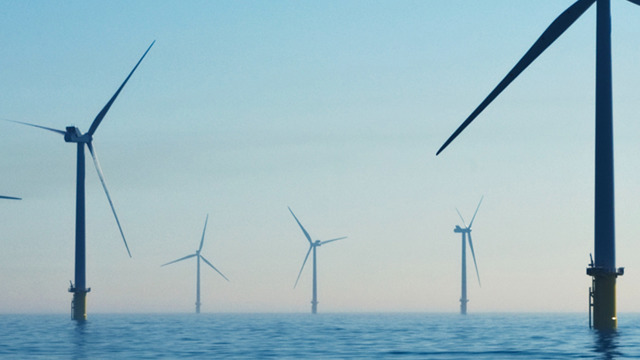The Ministry of Business, Innovation and Employment has recently released the Draft Fuel Security Plan ("Plan"), aiming to bolster New Zealand's fuel resilience and position itself to better manage global and domestic disruptions. Since the 2022 closure of the Marsden Point refinery, which removed onshore refining capabilities, New Zealand has been reliant on imported refined liquid fuels, primarily petrol, diesel, and jet fuel. These refined fuels remain essential inputs for the economy, rendering New Zealand vulnerable to offshore disruptions that affect fuel prices and supply, alongside existing exposure to natural disaster risk that may have localised effects on fuel supply.
The Government is committed to addressing these risks by creating a plan which can improve energy independence, reduce vulnerabilities, and minimise the impact of fuel disruptions. In addition, New Zealand needs to consider what infrastructure may be required as the uptake of alternative fuels expands, including through electrification, hydrogen and biofuels. Input from key stakeholders will be essential to shape the strategic direction for New Zealand's fuel security and ensure the continued resilience of New Zealand's fuel system and wider economy. Submissions on the Plan close at 5pm on 25 August 2025.
Key Components of the Plan
We list some of the key measures of the Plan below across the four focus areas:
- Resilience Against Global Supply Shocks: To avoid global disruptions having a significant impact domestically, the Plan proposes:
- continuing to engage with the International Energy Agency and key fuel export nations to coordinate efforts to manage global supply disruptions;
- reviewing the minimum stockholding obligation ("MSO") of liquid fuel reserves. The Government has already agreed to increase the diesel stockholding obligation from 21 to 28 days’ cover for importers with more than a 10 per cent market share from July 2028. The option to expand the stockholding obligation to all diesel importers will be considered in 2026;
- improving information transparency around fuel demand management and alternative fuels, recognising that accelerating the energy transition is the most cost-effective way to build in energy security;
- collecting data under information disclosure regimes, including the MSO and Fuel Industry Act 2020, to improve transparency across the supply chain and highlight system vulnerabilities; and
- regularly updating and publishing fuel demand forecasts to support fuel security decision-making.
- Domestic Resilience: The Plan aims to improve critical domestic fuel infrastructure by:
- monitoring fuel related risk on the National Risk Register and testing the National Fuel Plan annually, as well as in specific sectors;
- working alongside fuel companies to ensure that there is appropriate distribution capacity to manage disruptions;
- implementing a 10 day minimum stockholding obligation for jet fuel at Auckland Airport from 1 November 2026;
- monitoring the quality of imported fuel to ensure any off-specification fuel is detected early to minimise the risk of disruption;
- reviewing and, where necessary, updating the National Fuel Plan, Petroleum Demand Restraint Act 1981 and the MSO regime, to ensure that they enable fuel resilience including responses to disruptions and emergencies; and
- ensuring that the proposed Emergency Management Bill enables effective readiness and response arrangements for the fuel sector.
- Supporting Domestic Alternatives: The Plan proposes to encourage the production of alternative fuels like hydrogen, electricity and biofuels to reduce reliance on imported fuels and promote sustainability, including by:
- examining the role of Special Economic Zones ("SEZs") in supporting projects aimed at improving fuel security, which would allow businesses involved in these projects to operate in an environment with specially tailored regulation, financial support and access to infrastructure;
- ensuring that the regulatory framework is enabling to encourage investment in low-carbon alternative fuels;
- accelerating the uptake of electric vehicles by supporting charging infrastructure around the country;
- encouraging the uptake of alternative fuels for heavy vehicles;
- introducing a new fuel standard for renewable diesel; and
- investigating regulatory barriers to alternative fuels in the aviation and shipping industries.
- Resilience in a Transitioning Market: While New Zealand makes the energy transition to electricity and alternative fuels, there is uncertainty regarding the need for some critical infrastructure which could lead to their underinvestment or premature closure. The Plan proposes:
- monitoring the pattern of the supply and demand for fuels; and
- monitoring resilience measures at Auckland Airport.
Public Consultation and Feedback
The government is seeking feedback from the public to ensure that the plan is comprehensive and effective. The consultation questions focus on three main areas:
- Relevance of Focus Areas: Do the proposed focus areas address the challenges faced by the fuel sector?
- Effectiveness of Actions: Do you believe that the actions outlined in the plan will effectively address the challenges identified in each focus area?
- Additional Actions: Are there any additional actions that should be considered to further improve the fuel security plan?
The draft Fuel Security Plan is intended to be a proactive measure to safeguard New Zealand's fuel supply and economic stability. However, we note that many of its proposals relate to actions already underway, future reviews of existing regulatory frameworks, or exploring future options such as SEZs without committing to making future changes. To address the vulnerabilities in New Zealand's fuel system and promote the development of alternative fuels, the Government will need to follow up these reviews with concrete actions that facilitate the move towards a more resilient future.
If you would like assistance preparing your submission or would like to discuss the Plan and its implications for your business, please get in touch with one of our energy experts.



